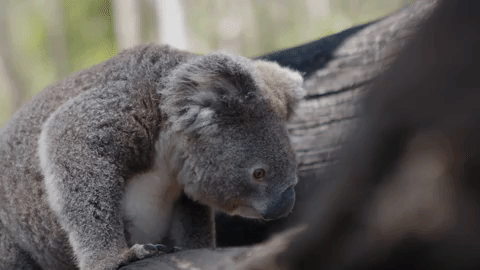The largest-ever private funding commitment to biodiversity conservation.
“The Protecting Our Planet Challenge is helping to ensure the world protects at least 30 percent of nature — both land and sea — by 2030. This is not just a goal about numbers — but a goal to ensure our planet forever remains a sustainable home for both people and wildlife.”
- Cristián Samper // Managing Director and Leader for Nature Solutions, Bezos Earth Fund
Studies show that protected areas are one of the most cost-effective ways to safeguard nature, vulnerable human populations, and climate, provided they are well-managed and respect the rights and needs of Indigenous peoples and local communities.
Research findings indicate that the conservation and effective management and guardianship of at least 30% of the planet in the most important places for biodiversity could protect up to 80% of plant and animal species, and secure 60% of the planet’s carbon stocks and 66% of the planet’s clean water.
"At Bloomberg Philanthropies, our mission is to help people around the world live better, longer lives – and protecting the ocean and marine ecosystems is a critical part of that work. Through the Protecting Our Planet Challenge, we’re helping more of our partners take action that will safeguard biodiversity, which sustains the lives and livelihoods of billions of people.”
– Patricia E. Harris // CEO, Bloomberg Philanthropies
The Commitment
—
A $5 billion pledge to protect and conserve the wild on Earth.
Eleven organizations. Ten years.
The Plan
The Protecting our Planet (POP) challenge is the largest-ever private funding commitment to biodiversity conservation. It is designed to raise global and national ambition, support projects around the globe that will help achieve 30 by 30 — the initiative to protect the 30% of terrestrial, freshwater, and marine ecosystems most important for biodiversity by 2030.
The POP challenge is not a new fund. Projects are supported by POP partner organizations and include the creation, expansion, management and monitoring of protected and conserved areas of land, inland waterways, and the ocean. POP prioritizes work with Indigenous peoples and local communities, as well as local and federal governments.
“This commitment to investing long-term in the explansion and management of marine-protected areas is about much more than ocean waters. It’s about the people who depend on those oceans.”
- Aileen Lee // Chief of Programs, Moore Foundation
We work together to support projects by building collective efforts behind a more equitable, carbon neutral and nature-positive future. Meeting this goal will require greater ambition, innovation and collaboration among governments, companies, and civil society to secure the mosaic of areas necessary for success. Yet this will only be possible if we also uphold the power and advance the rights of Indigenous peoples and local communities as guardians of the irreplaceable places upon which we all depend.
Meeting this goal will require:
Greater ambition, innovation and collaboration between governments, companies, civil society, Indigenous Peoples and local communities.
Using knowledge to identify the most important areas that need to be protected and conserved.
Strengthening the capacity to manage and monitor the effectiveness of protected and conserved areas.
Advancing the enduring power and the rights of Indigenous peoples and local communities as guardians of irreplaceable places upon which we all depend.
30 by 30
The initiative to protect and preserve 30% of terrestrial, freshwater and marine ecosystems most important for biodiversity by 2030.
“For our granchildren and their grandchildren to inherit a balanced, functioning planet, we have to rapidly slow the rate at which our economies are destroying nature. This challenge is why I continue to work alongside local communities, Indigenous peoples, and nations to quickly narrow the enormous gap between how little of the natural world is protected and how much needs to be protected.”
- Hansjörg Wyss // Founder & Chairman, Wyss Foundation
For more information about funding priorities and projects, please contact the POP partner organizations. ↓
Partners
-
Arcadia is a charitable fund of Lisbet Rausing and Peter Baldwin. It supports charities and scholarly institutions that preserve cultural heritage and the environment. Arcadia also supports projects that promote open access, and all of its awards are granted on the condition that any materials produced are made available for free online.
-
Bezos Earth Fund is Jeff Bezos' $10 billion commitment to fund scientists, activists, NGOs, and other actors who will drive climate and nature solutions. By allocating funds creatively, wisely, and boldly, the Bezos Earth Fund has the potential for transformative influence in this decisive decade. Funds will be fully allocated by 2030—the date by which the United Nations Sustainable Development Goals must be achieved.
-
Bloomberg Philanthropies invests in 941 cities and 173 countries around the world to ensure better, longer lives for the greatest number of people. The organization focuses on five key areas for creating lasting change: the Arts, Education, Environment, Government Innovation, and Public Health. Bloomberg Philanthropies encompasses all of Michael R. Bloomberg’s giving, including his foundation, corporate, and personal philanthropy as well as Bloomberg Associates, a pro bono consultancy that works in cities around the world. In 2021, Bloomberg Philanthropies distributed $1.66 billion. For more information, please visit bloomberg.org.
-
The Bobolink Foundation supports collaborative biodiversity conservation in the Americas, emphasizing grasslands, coastal conservation, wildlife and wild landscapes and community-based conservation. In partnership with others, we advance conservation and stewardship of biodiversity through the protection of natural areas, education, and building local constituencies for nature.
-
Gordon and Betty Moore established the Gordon and Betty Moore Foundation to create positive outcomes for future generations. In pursuit of that vision, we foster path-breaking scientific discovery, environmental conservation, patient care improvements and preservation of the special character of the San Francisco Bay Area. Our Environmental Conservation Program focuses on safeguarding the healthy ecosystems that sustain us.
-
The International Conservation Fund of Canada (ICFC) is Canada's leading international conservation organization. Since 2007, we have been partnering on projects with local conservation organizations in Latin America, Africa and Asia. Our work is science based and we are committed to engaging local communities and securing lasting conservation gains in priority areas. Key considerations are: vulnerability (species and ecological communities that are rare or have small ranges, as many do in the tropics); connectivity and ecologial sustainability; species richness/biodiversity; existing threats; and knowing what actions are needed and that they are feasible and cost-effective.
-
Re:wild protects and restores the wild. We have a singular and powerful focus: the wild as the most effective solution to the interconnected climate, biodiversity and human wellbeing crises. Founded by a group of renowned conservation scientists together with Leonardo DiCaprio, Re:wild is a force multiplier that brings together Indigenous peoples, local communities, influential leaders, nongovernmental organizations, governments, companies and the public to protect and rewild at the scale and speed we need. Learn more at rewild.org.
-
Everywhere Indigenous peoples thrive, their homelands and waters thrive, benefiting all peoples of this warming planet. This reality inspired Nia Tero’s mission of working in solidarity with Indigenous peoples to strengthen guardianship of the Earth. All of Nia Tero’s work is alongside Indigenous peoples’ right, capacity, and acceptance of responsibility to sustain thriving natural systems within their collective territories. Nia Tero’s strategies fall into two interwoven pathways: 1) direct partnership with Indigenous peoples securing guardianship of their homelands and waters; and 2) efforts to expand recognition and support for Indigenous guardianship globally.scription
-
Rainforest Trust creates and expands protected areas in rainforests and other tropical habitats by channeling private donor support to local partners. Since 1988, our cost-effective conservation model has protected 37 million acres, helping to save species from extinction, protect biodiversity, secure land titles for indigenous people, and prevent the release of carbon that causes climate change.
-
The Rob Walton Foundation (RWF) supports ambitious projects, partners and programs to foster a planet where people and nature thrive. With the passion of our founder, RWF works with urgency and an earnest belief that it will take all of us to reach global conservation goals, protect biodiversity, and create opportunity for communities.
-
In 2018 Hansjörg Wyss and the Wyss Foundation met the nature crisis by launching the Wyss Campaign for Nature. Wyss has committed $1.5 billion to the Campaign before the end of this decade, supporting Indigenous Peoples, local communities, and nations in their efforts to protect 30% of the planet by 2030.

















